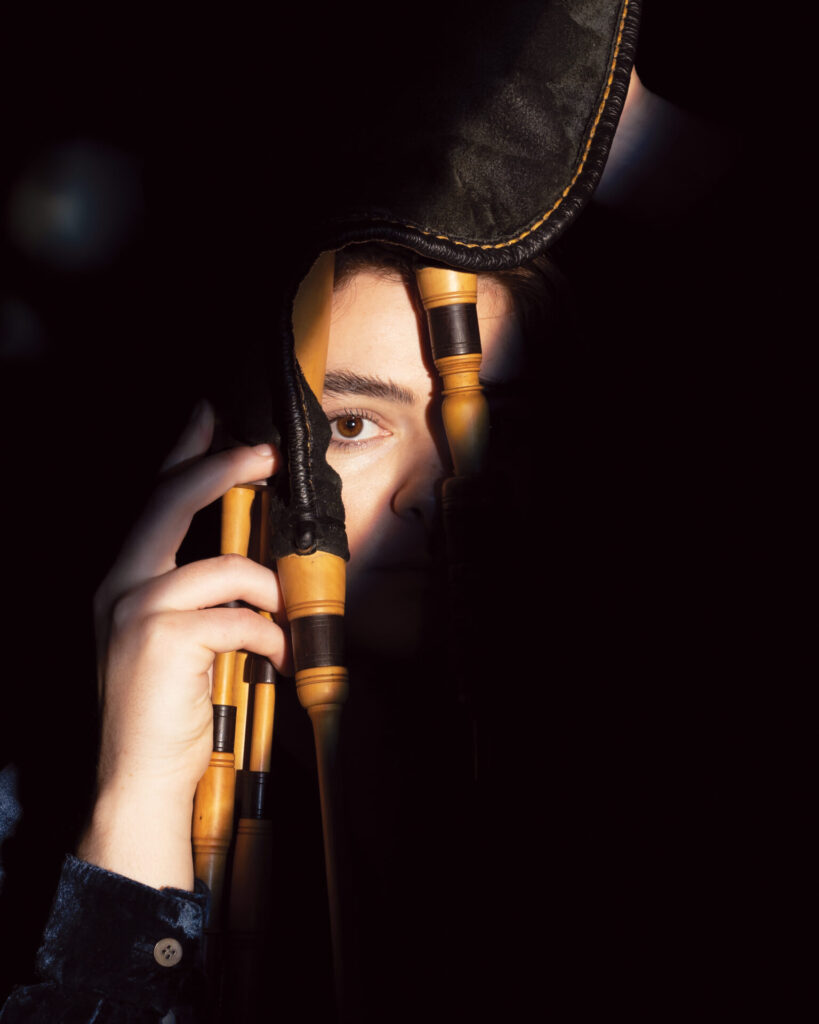Brìghde Chaimbeul, a musician who has pushed the capabilities of traditional pipes into bold new territory, presents her Baker’s Dozen in three parts. The first concerns the music she listened to growing up on the Isle Of Skye in a Gaelic-speaking family. “Just to get to places you had to do a lot of long drives,” she remembers. “We had a lot of Gaelic songs on, and listened to a lot of Radio nan Gàidheal, the Gaelic radio, which played a mix of traditional solo singing and newer trad stuff.
“When I look back, every day I was listening to a lot of Gaelic singing, speaking Gaelic at home, and my primary school was fully Gaelic. ‘Proud’ isn’t the right word, but it’s quite a deep part of who I am,” Chaimbeul continues. The prevalence of relatively obscure singers like Mary Smith in her Baker’s Dozen, she says, is because “she just has an incredible voice. I’d like people to hear her.” She also cites a revelatory introduction to Steve Reich by her mother around the same time, where perhaps the seeds of the avant-garde were first sown – her work on the pipes today takes a lot from drone and experimental music – as well as the impact of her grandfather who listened to a lot of classical piano and orchestral music.
The second part of her list concerns a wider fascination with traditional music of all kinds that developed later in her childhood. Having started out on piano, she took up the pipes due to the influence of a neighbour. “A couple of doors up from us was this guy Konstantin [Kosmidis, to whom debut album The Reeling is dedicated]. He was Greek but had moved to Scotland and had a family and taken up the pipes. We used to go to his house after school, he’d look after us some afternoons. Because he was a piper, he would have chanters and things lying around, and I took an interest, playing with things, asking what they were. He started giving me a few lessons and he was my first teacher.”
He taught her orally in a manner akin to the ancient tradition of canntaireachd, “kind of like Irish lilting, making sounds that sound like Gaelic words but they’re not words, they’re meant to imitate the sound of the ornaments and things like that.” Though when she got to school her pipe lessons were more formalised, “learning mainly through books and reading music,” Konstantin’s teachings remained impactful. “I don’t know if I had a preference at the time, but in retrospect there’s a certain freedom you get from learning by ear. You listen better and you listen more, so there’s more freedom to interpret it as you will. If you hear people who have been taught by ear, there’s a bit more of themselves in the music. I think it’s a really great foundation to learn and read technically, but I’d say it’s about a balance of both.”
Chaimbeul has struck that balance perfectly in the time since, immensely familiar with the intricacies of her instruments, yet unafraid to twist their sounds into something entirely her own. Alternative pop star Caroline Polachek is a fan, inviting her to perform on her album Desire, I Want to Turn Into You. Meanwhile Chaimbeul’s latest record, Carry Them With Us saw her work with extensively with saxophonist Colin Stetson, pushing the inherent drone of the pipes into deeply hypnotic new territory. It’s from this kind of world that the third and final section of her Baker’s Dozen is drawn – one that at first glance appears far from the trad she was raised on, but, as Chaimbeul has proved, there is a continuum. It’s the drone, she says, that “has opened the bridge to be crossed over” between her love of the old and the new.
Brìghde Chaimbeul performs as part of Supersonic Festival in Digbeth, which takes place from 30 August to 1 September. For the full lineup, tickets, and further information click here.


